#marinelli cinematic universe
Text

Pensare ad un obiettivo il più lontano possibile, e augurarsi di non raggiungerlo mai.
I 400 giorni – Funamboli e Maestri dir. Daniele Orazi [x]
#luca marinelli#i 400 giorni#the clip is from the trailer on rollingstone presented at the turin film festival. lets see if tumblr shows the post if i add the link#so this is what he was doing at tff! he's been part of this documentary following aspiring actors for 400 days#the director if i understood correctly is his agent? or it's part of his agency anyway and he was one of the mentors they interviewed#marinelli cinematic universe#g
52 notes
·
View notes
Text
Would recommend writing Mickey Miranda. He is my rotten soldier, my sweet cheese, my good time boy. I am So Attached.
#I was worried I wouldn’t be able to fully get into him but DUDES(gnc)— I got right into that headspace so easily#should I be worried about that?#either way#that’s my rotten little baby and I think he’s allowed to do whatever he wants#mickey miranda#a dangerous fortune#the luca marinelli cinematic universe#the pierre/mickey fic
6 notes
·
View notes
Text
luca marinelli suddenly opening a door, saying a one liner, and shooting someone cinematic universe
lo chiamavano jeeg robot (2015)
trust (2018)
8 notes
·
View notes
Text
Fantastic Man Magazine turned an issue over to writer/director Luca Guadagnino

who assembled some of his past and future collaborators, as well as people he admires.
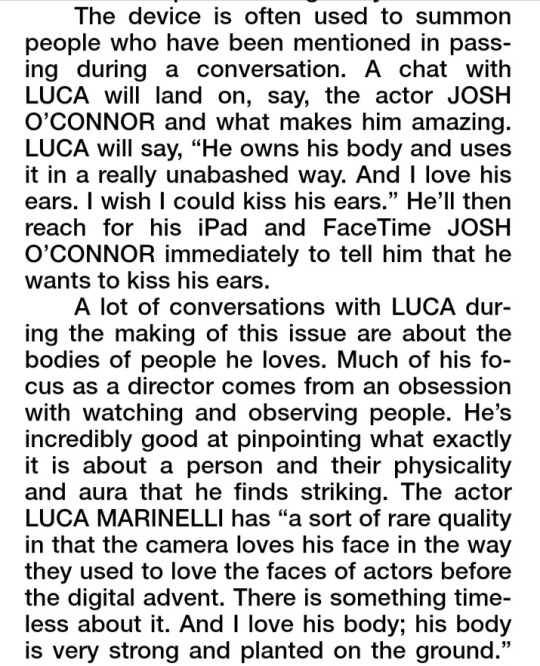


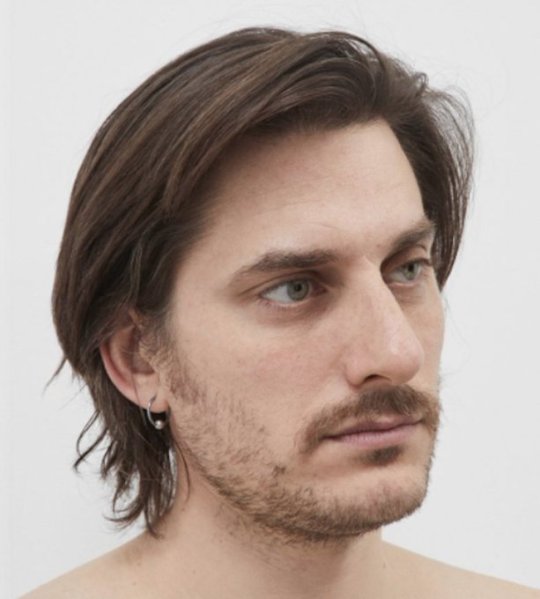

I am always surprised to remember Josh O'Connor hadn't worked with Luca before because O'Connor's GOD'S OWN COUNTRY came out the same time as CALL ME BY YOUR NAME and the comparisons were rife. The difference between the two films is O'Connor got starkers and it wasn't just bum shots; and there was certainly no panning away to the moon.
The lack of explicit sex in CALL ME BY YOUR NAME is (once again) defended by Luca.


Luca discusses his projects that did not get off the ground, including the Bob Dylan biopic BLOOD ON THE TRACKS (not to be confused with James Mangold's GOING ELECTRIC which was to star Timothee Chalamet). Also grounded is his adaptation of BRIDESHEAD REVISTED which was to star Cate Blanchett, Rooney Mara and Joe Alwyn.
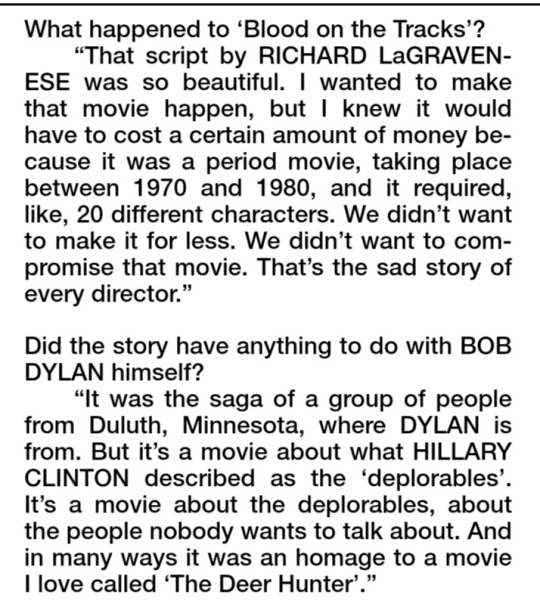
I'm just going to take a swing and guess that his other projects - a SCARFACE remake, an adaptation of Scotty Bowers' autobiography and FIND ME, the sequel to CALL ME BY MY NAME will also never see the light of day.
But his reunion with Timothee Chalamet is a done deal.

#luca marinelli#luca guadagnino#josh o connor#timothee chalamet#timmy chalamet#cmbyn#cmbyn fandom#charmie cinematic universe#bones and all
102 notes
·
View notes
Photo
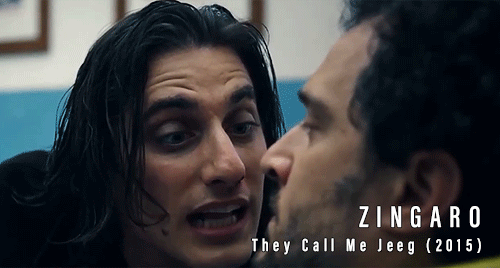
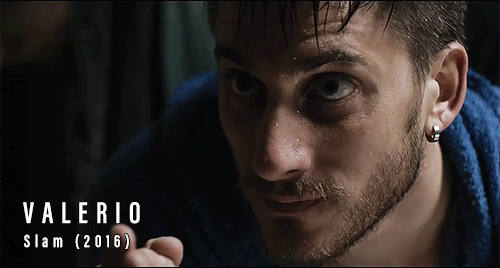
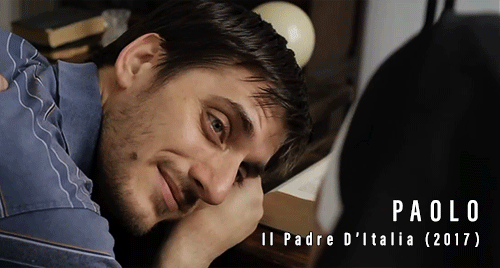






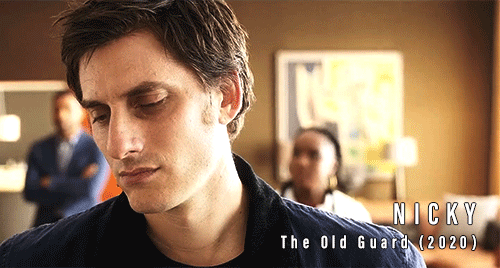
LUCA MARINELLI FILMOGRAFIA | PART 2
#he's so beautiful#how does he have this kind of range#luca marinelli#they call me jeeg#il padre d'italia#trust#martin eden#the old guard#my only contribution to the luca cinematic universe#this is what i did instead of working on med school apps#my priorities
2K notes
·
View notes
Note
Writing Prompt
Pairing -Kaysanova
Pairings for multiverse - Pierre and Roberta
Ratings - Explicit
Trope- Rom com
Dialogue prompt- Are you cold ? (for tog canon) , " I can't do this without you" and " I am in love with you " (for au)
Scenarios for tog canon - Pre canon+ country
Scenarios for AU-Parent
Single parent Pierre hires baby sitter roberta and falls for her.
The final tumblr prompt for my reader celebration is here!! Lol, remember when I thought this would take like a week, and I'd write maybe like 500 words for each one?? Whoops, nope, 30k+ over a month haha.
BUT for this one I wasn't sure if you had a preference anon, between the two suggestions, so went with the babysitter AU ;)
Title: "Are you staying?" (8k)
Rated: E
Single dad, Pierre, hires down on her luck, babysitter Roberta, and really there was no way they weren't going to end up together. These two deserve everything, and they'll give it to each other :)
You can read it here, on AO3
#anon answered#tumblr prompt#writing prompt#crossover au fic#crossover au#Roberta is a queen#Pierre is amazing#and together they deserve everything <3#luca marwan crossover aus#luca marinelli multiverse characters#luca marinelli cinamatic universe#marwan kenzari mulitverse characters#marwan kenzari cinematic universe
7 notes
·
View notes
Text
i think i am going to rewatch il padre d'italia today
#if i have time that is#il padre d'italia 🤝 the lmsnsuscu 🤝 jeeg robot#(lmsnsuscu = luca marinelli sings non sono una signora cinematic universe)#neon has thoughts
6 notes
·
View notes
Note
Excuse me but where is all the content of nicolo going crazy for the Italy’s euro win??? Surely he rides that high and joe!! Also I just listened to the MANEKSIN music and it’s very sexy and I need more content of Nicky singing it and dressing up in THAT lead singer outfit and joe just 🤤!!
DON'T WORRY ANON I GOT YOU COVERED
re: the Euro 2021 victory, you have this and this and also, my own extremely humble contribution (I wrote it in a haze. The next morning my notifications had BLOWN UP)
re: Måneskin and the Eurovision outfit, may I direct you to this fanart? and to this fic? There's also this, and then these two are comparisons between Måneskin and Fabio Cannizzaro from 'They Called Him Jeeg', a character from the Luca Marinelli Extended Cinematic Universe. Finally, another humble contribution from me.
The fandom Hive Mind has not let you down, Anon.
#anonymous#asks and answers#the old guard#nicolò di genova#yusuf al kaysani#otp time#immortal husbands#kaysanova
17 notes
·
View notes
Text
Luca Marinelli cinematic universe is a true thing now. He has his franchise aaaah I'm so PROUD
28 notes
·
View notes
Text
most of the UK reviews i’ve read of martin eden have been a disappointment, tbh. i don’t know if this is because critics have been busy with cannes or because outlets here just don’t have the space, or because it’s kind of seen as old news. i have seen no real engagement with the politics or form beyond a couple of cursory lines, and it’s a shame because... i think it’s really rich wrt those elements?
so i am looking again at the (wonderful) review from film comment last year and it’s such a shame that it’s not available freely online. so i thought i’d post it here behind a cut. it’s long but worth it imo (and also engages really interestingly with marcello’s other films). it’s by phoebe chen.
COLLECTIVE CONSCIOUSNESS
Jan 3, 2020
BY PHOEBE CHEN
EARLY IN JACK LONDON’S 1909 NOVEL MARTIN EDEN, there is a scattering of references to technical ephemera that the 20th century will promptly leave behind: “chromos and lithographs,” those early attempts at large-scale reproduction; “a vast camera obscura,” by then a centuries-old relic; a bullfight so fervid it’s like “gazing into a kinetoscope,” that proto-cinematic spectacle of cloistered motion. These objects now seem like archaic curios, not much more than the flotsam of culture from the moment it shifted gears to mass production. It’s a change in scale that also ensnares the novel’s title character, a hardy young sailor and autodidact-turned-writer-célèbre, famously an avatar of London’s own hollowing transmutation into a figure for mass consumption. But, lucky him—he remains eminent now on the other side of a century; chance still leaves a world of names and faces to gather dust. Easily the most arresting aspect of Pietro Marcello’s new adaptation is its spotlight on the peripheral: from start to end, London’s linear Künstlerroman is intercut with a dizzying range of archival footage, from a decaying nitrate strip of anarchist Errico Malatesta at a workers’ rally to home video–style super 16mm of kids jiving by an arcade game. In these ghostly interludes, Marcello reanimates the visual detritus of industrial production as a kind of archival unconscious.
This temporal remixing is central to Marcello’s work, mostly experimental documentaries that skew auto-ethnographic and use elusive, essayistic editing to constellate place and memory, but always with a clear eye to the present. Marcello’s first feature, Crossing the Line (2007), gathers footage of domestic migrant workers and the nocturnal trains that barrel them to jobs across the country, laying down a recurring fascination with infrastructure. By his second feature, The Mouth of the Wolf (2009), there is already the sense of an artist in riveting negotiation with the scope of his story and setting. Commissioned by a Jesuit foundation during Marcello’s yearlong residency in the port city of Genoa, the film ebbs between a city-symphonic array and a singular focus on the story of a trans sex worker and her formerly incarcerated lover, still together after 20-odd years and spells of separation. Their lives are bound up with a poetic figuration of the city’s making, from the mythic horizon of ancient travails, recalled in bluer-than-blue shots of the Ligurian Sea at dawn, to new-millennium enterprise in the docklands, filled with shipping crates and bulldozers busy with destruction.
Marcello brings a similar approach to Martin Eden, though its emphasis is inverted: it’s the individual narrative that telescopes a broader history of 20th-century Italy. In this pivotal move, Marcello and co-writer Maurizio Braucci shift London’s Oakland-set story to Naples, switching the cold expanse of the North Pacific for the Mediterranean and its well-traversed waters. The young century, too, is switched out for an indeterminate period with jumbled signifiers: initial clues point to a time just shy of World War II, though a television set in a working-class household soon suggests the late ’50s, and then a plastic helicopter figurine loosely yokes us to the ’70s. Even the score delights in anachronism, marked by a heavy synth bass that perforates the sacral reverb of a cappella and organ song, like a discotheque in a cathedral. And—why not?—’70s and ’80s Europop throwbacks lend archival sequences a further sense of epochal collapse. While Marcello worked with researcher Alessia Petitto for the film’s analog trove, much of its vintage stock is feigned by hand-tinting and distressing original 16mm footage. Sometimes a medium-change jolts with sudden incongruity, as in a cut to dockworkers filmed in black and white, their faces and hands painted in uncanny approximations of living complexions. Other transitions are so precisely matched to color and texture that they seem extensions of a dream.
Martin’s writer’s optimism is built on a faith in language as the site of communication and mutual recognition. So follows his tragedy.
Patchworked from the scraps of a long century, this composite view seems to bristle against a story of individual formation. It feels like a strange time for an artist’s coming-of-age tale adapted with such sincerity, especially when that central emphasis on becoming—and becoming a writer, no less—is upended by geopolitical and ecological hostility. At first, our young Martin strides on screen with all the endearing curiosity of an archetypal naïf, played by Luca Marinelli with a cannonballing force that still makes room for the gentler affects of embarrassment and first love. Like the novel, the film begins with a dockside rescue: early one morning, Martin saves a young aristocrat from a beating, for which he is rewarded with lunch at the family estate. On its storied grounds, Martin meets the stranger’s luminous sister, Elena Orsini (Jessica Cressy), a blonde-haloed and silk-bloused conduit for his twinned desires of knowledge and class transgression. In rooms of ornate stucco and gilded everything, the Orsinis parade their enthusiasm for education in a contrived show of open-mindedness, a familiar posture of well-meaning liberals who love to trumpet a certain model of education as global panacea. University-educated Elena can recite Baudelaire in French; Martin trips over simple conjugations in his mother tongue. “You need money to study,” he protests, after Elena prescribes him a back-to-school stint. “I’m sure that your family would not ignore such an important objective,” she insists (to an orphan, who first set sail at age 11).
Anyone who has ever been thrilled into critical pursuit by a single moment of understanding knows the first beat of this story. Bolting through book after book, Martin is fired by the ever-shifting measure of his knowledge. In these limitless stretches of facts to come, there’s the promised glow of sheer comprehension, the way it clarifies the world as it intoxicates: “All hidden things were laying their secrets bare. He was drunk with comprehension,” writes London. Marcello is just as attentive to how Martin understands, a process anchored to the past experiences of his working body. From his years of manual labor, he comes to knowledge in a distinctly embodied way, charming by being so literal. At lunch with the Orsinis, he offers a bread roll as a metaphor for education and gestures at the sauce on his plate as “poverty,” tearing off a piece of education and mopping up the remnants with relish. Later, in a letter to Elena, he recounts his adventures in literacy: “I note down new words, I turn them into my friends.” In these early moments, his expressions are as playful as they are trenchant, enlivened by newfound ways of articulating experience. His writer’s optimism is built on a faith in language as the site of communication and mutual recognition. So follows his tragedy.
One of Marcello’s major structural decisions admittedly makes for some final-act whiplash, when a cut elides the loaded years of Martin’s incremental success, stratospheric fame, and present fall into jaded torpor. By now, he is a bottle-blonde chain-smoker with his own palazzo and entourage, set to leave on a U.S. press tour even though he hasn’t written a thing in years. His ideas have been amplified to unprecedented reach by mass media, and his words circulate as abstract commodities for a vulturine audience. For all its emphasis on formation, Martin Eden is less a story of ebullient self-discovery than one of inhibiting self-consciousness. There is no real sense that Martin’s baseline character has changed, because it hasn’t. Even his now best-selling writing is the stuff of countless prior rejected manuscripts. From that first day at the Orsini estate, when his roughness sticks out to him as a fact, he learns about the gulf between a hardier self-image and the surface self that’s eyed by others.
WITH SUCH A DEEPLY INHABITED PERFORMANCE by Marinelli, it’s intuitive to read the film as a character study, but the lyrical interiority of London’s novel never feels like the point of Marcello’s adaptation. Archival clips—aged by time, or a colorist’s hand—often seem to illustrate episodes from Martin’s past, punctuating the visual specificity of individual memory: a tense encounter with his sister cuts to two children dancing with joyous frenzy; his failed grammar-school entrance exam finds its way to sepia-stained shots of a crippled, shoeless boy. These insertions are more affective echoes than literal ones, the store of a single life drawn from a pool of collective happening.
But, that catch: writing in the hopes of being read, as Martin does (as most do), means feeding some construct of a distinctive self. While the spotlight of celebrity singles out the destructive irony of Martin’s aggressive individualism, Marcello draws from Italy’s roiling history of anarchist and workerist movements to complicate the film’s political critique, taking an itinerant path through factions and waves from anarcho-communism in the early 1900s to the pro-strike years of autonomist Marxism in the late ’70s. In place of crystalline messaging is a structure that parallels Martin’s own desultory politics, traced in both film and novel through his commitment to liberal theorist Herbert Spencer. Early on, Martin has an epiphanic encounter with Spencer’s First Principles (a detail informed by London’s own discovery of the text as a teen), which lays out a systematic philosophy of natural laws, and offers evolution as a structuring principle for the universe—a “master-key,” London offers. Soon, Martin bellows diatribes shaped by Spencer’s more divisive, social Darwinist ideas of evolutionary justice, as though progress is only possible through cruel ambivalence. Late in the film, an image of a drunk and passed-out Martin cuts to yellowed footage of a young boy penciling his name—“Martin Eden”—over and over in an exercise book, a dream of becoming turned memory.
In Marcello’s previous feature, Lost and Beautiful (2015), memory is more explicitly staged as an attachment to landscape. Like Alice Rohrwacher’s Happy as Lazzaro, Lost and Beautiful plays as a pastoral elegy but lays out the bureaucratic inefficiency that hastens heritage loss through neglect. Rolling fields make occasional appearances in Martin Eden, but its Neapolitan surroundings evoke a different history. Far from the two oceans that inspired a North American tradition of maritime literature, the Mediterranean guards its own idiosyncrasies of promise and catastrophe. Of the Sea’s fraught function as a regional crossroads, Marcello has noted, in The Mouth of the Wolf, a braiding of fate and agency: “They are men who transmigrate,” the opening voiceover intones. “We don’t know their stories. We know they chose, found this place, not others.” Mare Nostrum—“Our Sea”—is the Roman epithet for the Mediterranean, a possessive projection that abides in current vernacular. Like so many cities that cup the sea, Naples is a site of immigrant crossing, a fact slyly addressed in Martin Eden with a fleeting long shot of black workers barreling hay in a field of slanted sun, and, at the end, a group of immigrants sitting on a beach at dusk. Brief, but enough to mark the changing conditions of a new century.
Not much is really new, however: not the perils of migration, nor the proselytizing individualists, nor the media circus, nor the classist distortions of taste, nor, blessedly, the kind of learning for learning’s sake that stokes and sustains an interest in the world. Toward the end of the film, there is a shot of our tired once-hero, slumped in the back seat of a car, that cuts to sepia stock of children laughing and running to reach the camera-as-car-window, as if peering through glass and time. It recalls a scene from Wim Wenders’s Wings of Desire, which leaps backward through a similar gaze, when the weary angel Cassiel looks out of a car window at the vista of ’80s Berlin and sees, instead, grainy footage of postwar streets strewn with rubble in fresh ruin. Where human perception is shackled to linearity, these wool-coated and scarfed seraphs—a materialization of Walter Benjamin’s “angel of history”—see all of time in a simultaneous sweep, as they wander Berlin with their palliative touch. Marcello’s Martin Eden mosaics a view less pointedly omniscient, but just as filled with a humanist commitment to the turning world, even as Martin slides into disillusion. All its faces plucked from history remind me of a line from a Pasolini poem: “Everything on that street / was human, and the people all clung / to it tightly.”
Phoebe Chen is a writer and graduate student living in New York.
13 notes
·
View notes
Text
Throwback to this event from 2018 in Ostia after the screening of Non Essere Cattivo during Notte Caligari hosted by Il Cinema In Piazza.
I just think they are neat and hilarious at public events
huge thanks to @weardes for tracking it down in this gifset.
Full video in the comments. Brief translation under the cut:
The host is thanking those of the crew who couldn't be there, and then asks everyone if they want to share a memory about Ostia or if they have anything they want to say in particular to the people there, since this was an event that brought the movie where it was shot after three years from its release, in some way closing the cycle with the palce too.
People didn't know who had to start and the host called Alessandro to speak first since he already had the mic.
Alessandro says that it seems like this cycle never ends, that even after so many years since they've met to make this movie, they are still here talking about it and this fact makes him, and them all, emotional. The only thing he can do is to shout his most absolute thanks to everyone for being here and to still want to watch the movie, and more in general for wanting to support cinematography. If one is in love with Non Essere Cattivo it's because they love a certain kind of cinematography, which is what they also love.
Then he makes a joke, aside from his huge thanks, he's passing the mic to Giordano Meacci (screenwriter), that way he'll have things to say for 40 minutes, and quote: "Nah, that's not true, look how handsome he is. And nothing, thank you, what else can I say? There's here Luca Marinelli who has something to say."
Luca meanwhile is taking pictures with an analog camera and is caught off guard, and says "Just like in the 90s." And Alessandro asks if it works with film, that camera, and Luca goes, "Yes, yes. You gotta develop it. Those things..." and makes a gesture to mean 'ancient'.
He then also thanks everyone and starts elaborating a reply. He says it's very, very, veeery moving, and this story really never ends. A while ago, when they were following and promoting the movie, they used to say it was like a book, every time you turn the page and it's blank then it starts filling in as colors start to appear, and seeing everyone here again– "it's been a while but... [emphatically] it doesn't seem like it."
At that everyone laughs and Alessandro cracks up, clinging to his shoulder, and Luca just closes with, "It's beautiful, thank you." Everyone claps and they move on to the screenwriters.
#EDIT: found again the post where i first saw the vid!! was losing my mind for two days cause I was sure it was in there#luca marinelli#alessandro borghi#don't be bad#borghi totally losing it at marinelli's answer was priceless#ill never tire of seeing the juxtaposition of the completely different ways these two are in public#wanted to preserve this moment for posterity and wanted it with audio#im still going through old stuff but this needed to be here#marinelli cinematic universe#non essere cattivo#borghi limited edition
22 notes
·
View notes
Text
I haven’t watched Jeeg, and to be honest, I probably won’t— if only because I love Furiously and Lani’s (@AO3) characterization of Fabio way too much in their Roman Holiday series. I know he’s nuts as fuck, I know he’s not a redeemable character, but DAMN I love that greasy little gutter rat.
#luca marinelli#the Luca Marinelli cinematic universe#they call me jeeg#lo chiamavano jeeg robot#fabio cannizzaro#wolf#majid zamari#Majid x Fabio#Lani#I don’t know who you are but I LOVE YOU
0 notes
Text
tutti i santi giorni, il padre d'italia, martin eden and diabolik, or, as i like to call them, the lmahslicu (luca marinelli and his sicilian love interest cinematic universe)
17 notes
·
View notes
Text
luca marinelli gets slapped cinematic universe
2 notes
·
View notes
Link

If this comes to fruition, Taylor is a two-way Armie / Timothee Cinematic Universe member as she’s the girlfriend and former costar of Lucas Hedges.


- The nominations for the GLAAD Media Awards have been announced. Some of the nominees?
Outstanding Film - Wide Release
The Craft: Legacy (Sony Pictures)
Happiest Season (Hulu)
Ma Rainey's Black Bottom (Netflix)
The Prom (Netflix)
The Old Guard (Netflix)
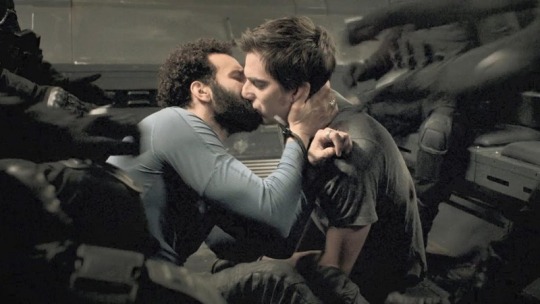

Outstanding Film - Limited Release
And Then We Danced (Music Box Films)
The Boys in the Band (Netflix)
The Half of It (Netflix)
I Carry You With Me (Sony Pictures Classics)
Kajillionaire (Focus Features)
The Life Ahead (Netflix)
Lingua Franca (ARRAY/Netflix)
Monsoon (Strand Releasing)
The True Adventures of Wolfboy (Vertical Entertainment)
Ammonite (NEON)
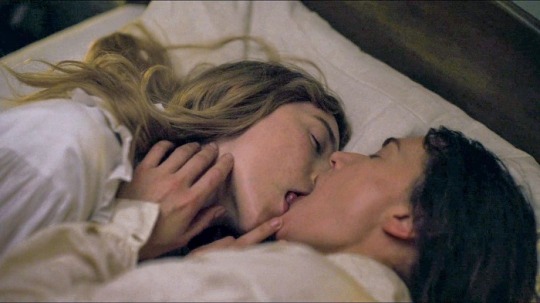
Outstanding Comedy Series
Big Mouth (Netflix)
Dead to Me (Netflix)
Everything's Gonna Be Okay (Freeform)
Love, Victor (Hulu)
Saved by the Bell (Peacock)
Schitt's Creek (Pop)
Sex Education (Netflix)
Superstore (NBC)
Twenties (BET)
Harley Quinn (HBO Max)

Outstanding Drama Series
9-1-1: Lone Star (FOX)
P-Valley (Starz)
Ratched (Netflix)
Star Trek: Discovery (CBS All Access)
Supergirl (The CW)
The Umbrella Academy (Netflix)
Vida (Starz)
The Wilds (Amazon)
Wynonna Earp (Syfy)
Killing Eve (BBC America)

Outstanding TV Movie
Alice Júnior (Netflix)
The Christmas House (Hallmark Channel)
The Christmas Setup (Lifetime)
Dashing in December (Paramount Network)
La Leyenda Negra (HBO Latino/HBO Max)
The Thing About Harry (Freeform)
Uncle Frank (Amazon Studios)
Unpregnant (HBO Max)
Your Name Engraved Herein (Netflix)
Bad Education (HBO)
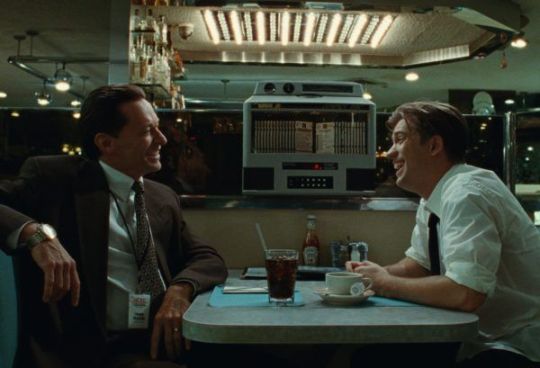
Outstanding Limited or Anthology Series
Dispatches from Elsewhere (AMC)
The Haunting of Bly Manor (Netflix)
I May Destroy You (HBO)
Little Fires Everywhere (Hulu)
Hollywood (Netflix)

#Timothee Chalamet#timmy chalamet#Luca Guadagnino#Taylor Russell#charmie cinematic universe#cmbyn fandom#the old guard#luca marinelli#marwan kenzari#charlize theron#hollywood#jeremy pope#jake picking#harley quinn#lgbtqia#lgbt#glaad#glaad media awards#awards season#kate winslet#Saoirse Ronan#bad education#hugh jackman#Rafael Casal#killing eve#sandra oh#jodie comer#ammonite
31 notes
·
View notes
Note
great ass. shame its attached to a european but that can't be helped really. should wear primoesque pants more, it softens the whiteness of it all -seph
everyone say thank u to ms tuisku @polarcell for 70s nicky, a true gem of the lmacu (luca marinelli's ass cinematic universe)
7 notes
·
View notes